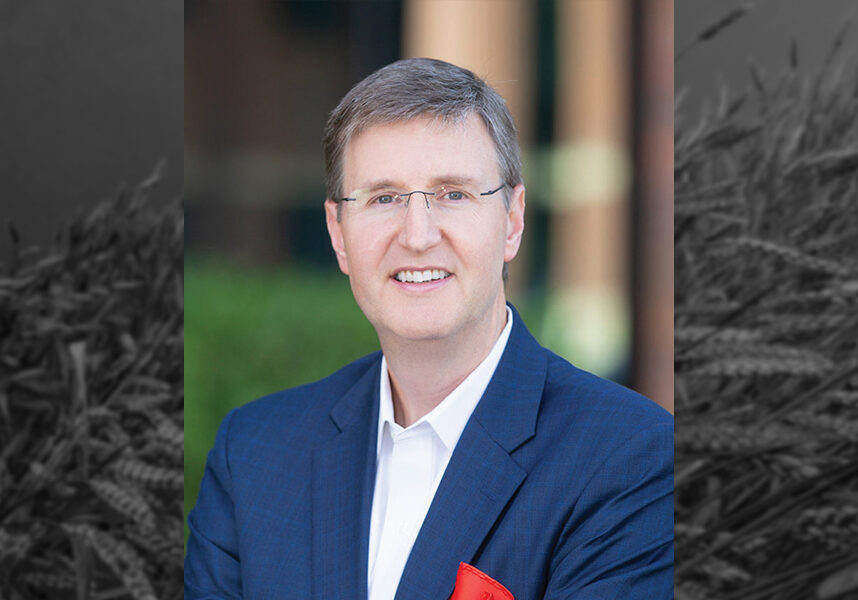Battle between farmers, foodies Agriculture policy expert to address conflict during keynote convention presentation
2022November 2022
By Trista Crossley
Editor

National agriculture policy expert Ray Starling sees a growing battle between those involved in the agricultural industry and those who say the food system is broken and want to reform it.
“You’ve got the folks actually involved in the industry on one side,” he explained. “On the other side, mostly they are populated with people who have never actually grown food, never actually manufactured food, never actually sold food, but they want to tell the rest of us how to do it. That battle concerns me, and I wanted to find out why is that happening? Where is it coming from? How are they getting credence and the capability to push that perspective when it seems, to me, at least, so out of whack with reality?”
Starling will be one of the keynote speakers at the upcoming 2022 Tri-State Grain Growers Convention, Nov. 29-Dec. 1, at the Coeur d’Alene Resort in Coeur d’Alene, Idaho. He has served as chief of staff to a U.S. senator and U.S. Secretary of Agriculture Sonny Perdue, worked at the White House, and been involved in crafting public policy for more than 15 years. He currently serves as general counsel and president of the NC Chamber, a leading business advocacy organization in North Carolina. Starling is the author of a newly released book, “Farmers vs. Foodies: A Look at the Outside Forces Forging the Future of Farming and Food.” He said his presentation will touch on many of the themes he explores in the book.
“There’s a chapter in the book I call ag humpty dumptyism. It’s all these people that say, ‘oh the food system is broken. It needs to be repaired. It needs to be dismantled,’” he said. “These are big claims, and they get big coverage, and they are coming from really, really smart people.”
From his research, Starling says the conflict can be broken down into events happening in the background and the foreground. In the background, there’s a number of cultural forces at work, primarily an era of “pick your own facts” that can be quickly disseminated regardless of accuracy.
“I call it the age of influence without expertise,” Starling explained.
Another background factor is the movement of people, not only away from the farm, but away from the production of products in general and the realization that a product has to be manufactured at some point.
“So many fewer people are coming home to a household where a dad worked in a factory and actually made stuff. Where a mother worked in a factory and made stuff. I think it’s led to an environment where people think they can dictate the terms of the deal because that’s what they do. They go on Amazon. They click the button, and it’s there the next day, depending on what part of the country you live in. It’s easy. If I want my food to be — fill in the blank — well, I should be able to click a button, and it shows up that way. Food doesn’t, frankly nothing works that way, but food definitely doesn’t work that way,” Starling said.
The foreground factors, which Starling considers to be much more calculating, include groups formed “for the purpose and with the express goal of dismantling” elements of the food system, such as animal agriculture. He said we are seeing more and more policy debates happening in the courtroom and the media, rather than in Washington, D.C., and agriculture has to figure out how to get better at pushing back. But surprisingly, Starling makes the argument that the main reason for pushing back isn’t because it makes farmers mad or for economic reasons, but because agriculture has a moral obligation, especially as the world seems to be headed into a recession and food costs are increasing.
“If these outsiders succeed, they are going to raise the cost of food, frankly, with no return in terms of it’s not going to result in greater production. It’s not going to result in greater quality. It’s going to raise the price of food, and frankly, that’s where that moral appeal comes in,” he said. “That’s why we’ve got to push back. Not because our feelings are hurt, not because it might cost us a nickel more a bushel to grow it the way they want it, but because at the end of the day, they give us a world that is less food secure, and we simply can’t stand for that.”
For more information on the convention and to register, click on the links.












